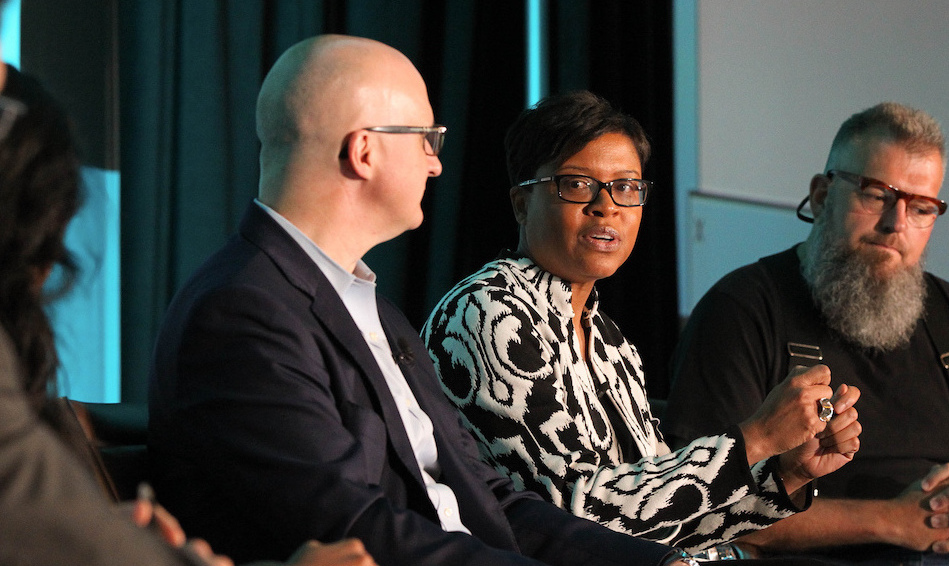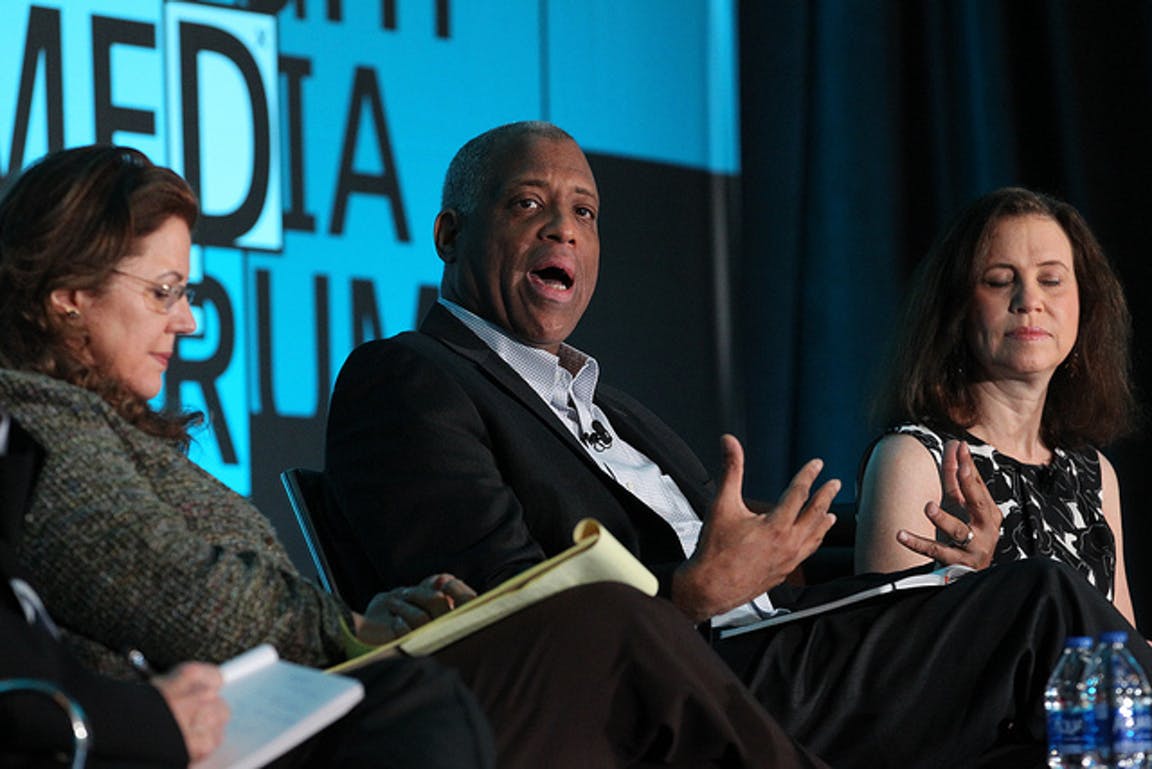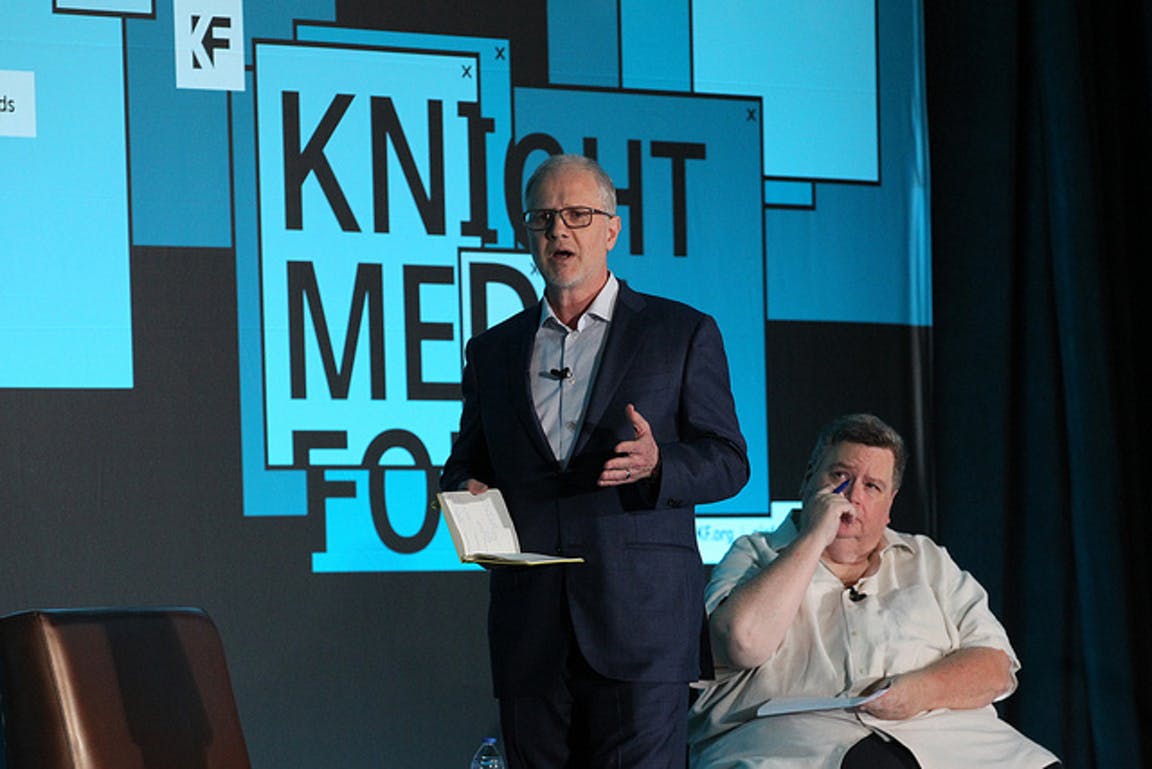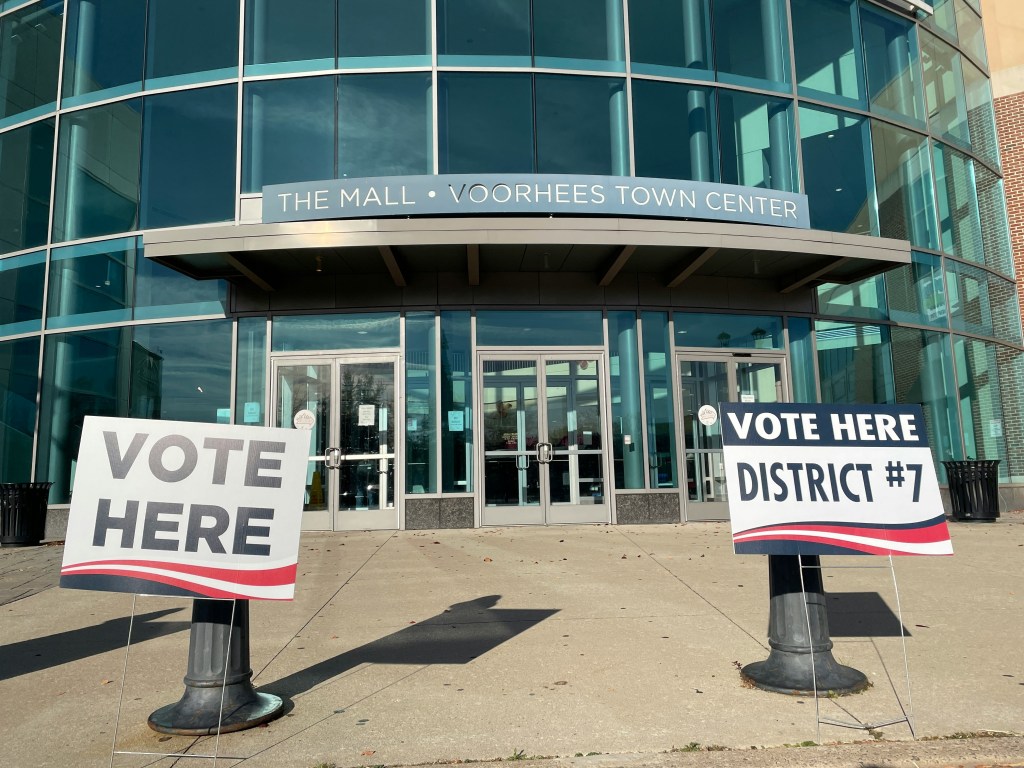
Knight Media Forum: The opportunity is now to build the future of local news
We have never had a bigger opportunity – or greater need – to build the future of local news. That was at the heart of discussions at the Knight Media Forum, a gathering of leading journalism funders and practitioners held last week in Miami.
“The shorter the distance between our neighbors and our news, the stronger our community. There is strength in local, and local leads to trust,” Knight Foundation President Alberto Ibargüen said. “When there is distance, however, between news and reader, event and citizen, trust erodes and our social fabric frays.”
Since its inception 12 years ago, the gathering has focused on ways that journalism innovators and local funders can help fill the gaps left by the collapsing business model for local news. This year’s event, however, was infused by optimism that powerful, scalable organizations were emerging that could turn the tide and help build a sustainable future for local news.
It’s why Knight Foundation recently announced it will double its commitment to reinvigorate local journalism, with $300 million in investments over the next five years, and called on individual and institutional investors to join the effort. As Ibargüen simply put: “If you do not have a reliably informed citizenry, you will not have a functioning democracy.”
Speaker after speaker at the Knight Forum echoed that local news and other democratic institutions are in a crisis moment. The two-day conference in Miami focused on the way forward, with media leaders and foundations offering a myriad of solutions — some years in the making, others just launching.

New efforts offer national solutions to local problems
Report for America and The American Journalism Project, for example, offer two new paths to meeting local information needs. Report for America aims to put more reporters in newsrooms in need – similar to the Teach for America model that places teachers in underserved classrooms around the country.
Meanwhile the American Journalism Project, which launched with $42 million the day the forum started, is a philanthropic venture fund for public service-focused nonprofit news sites. The project builds on the success of both the Texas Tribune and Chalkbeat, some of the first and most successful nonprofit news sites, and seeks to create a new generation of public service media.
Key to its success was initial seed funding and an emphasis on raising revenue. Likewise, the American Journalism Project will offer funding to public service-oriented news startups, in addition to strategic guidance and business expertise.
“We need to think of local news as fundamentally civic rather than commercial in nature. It requires a huge shift…in the norms of this country,” said John Thornton, a co-founder of the American Journalism Project.
While the American Journalism Project focuses on nonprofit models, the for-profit news model still faces major challenges. Mizell Stewart III, senior director of talent, partnerships and news strategy for Gannett and the USA TODAY Network, put this issue in stark relief. He noted that as he sat on the stage, his employer faced a hostile takeover from investors — exemplifying the battle between owners who want to either build or bleed their newsrooms.
Creating public benefit corporations – as happened in Philadelphia when founder Gerry Lenfest gifted his ownership of the Philadelphia Media Network to the Philadelphia Foundation — is one possibility, Stewart said. Having journalistic enterprises under the umbrella of community development corporations is another, he said.
Collaboration is key to better coverage
Partnerships, once unheard of between news outlets, are now yielding impressive coverage of critical issues. In Detroit and Philadelphia, for example, media outlets large and small, nonprofit and commercial, have formed collaboratives where they dig together into one important issue facing their city. In Philly, Resolve Philadelphia, in partnership with the Solutions Journalism Network, produced more than 200 stories on the challenges the formerly incarcerated face as they re-enter society, with a focus on community engagement around solutions. The effort was so successful the group is now focusing on poverty in the city.
Detroit, typically a “city of silos” said John Bebow, of president and CEO of Bridge Magazine, is six years into its collaborative, which started by investigating the city’s bankruptcy.
“We’re much stronger together than we are as individual media enterprises,” Bebow said.
The Bay Area, with funding from the Silicon Valley Community Foundation, and other regions are replicating the idea.
“Radical transparency” in newsrooms needs to be the norm to increase trust
While many newsrooms have strict standards and ethics policies around newsgathering, they don’t often share them, nor do they lift the veil to show what goes into to producing their stories. Doing so — and practicing “radical transparency” — would go a long way toward rebuilding trust in media, which has been declining, the Knight Commission on Trust, Media and Democracy said it in its recent report, The report includes 10 recommendations for journalism, technology and citizenship that aim to restore trust in democratic institutions.
“One reason for the decline in trust has been the resistance to explain journalistic practices and norms and why we do what we do,” said Stewart, a member of the Knight Commission. “We think it’s a radical concept to say to journalists, explain yourself.”
Mirta Ojito, the senior director, news standards at NBCUniversal Telemundo, said news outlets should go one step further. “What’s equally as important is what we don’t know. Often we leave that out. We need to tell people right now what we don’t know and what we’re working on getting,” Ojito said.
In addition to the challenges the journalism field faces, technology and the bad actors who use platforms to their advantage continue to exacerbate problems. At the forum, technologist danah boyd, founder and president of Data & Society, dug into the case of YouTube, the platform where most young people get the majority of their news, and yet is also a breeding ground for misinformation masquerading as truthful content.
YouTube recommends videos to viewers; however, in many instances, like breaking news, there aren’t often good, contextual, informational videos on the topic. Conspiracy theorists seize on this — by being among the first to upload videos on the issue, and shaping the national conversation on what is happening on the ground. (Think about videos on “crisis actors” during mass shootings, as an example.)
“You go to YouTube for… information and in a few paces you are exposed to extremist content,” boyd said.
While YouTube does try to clean up its site, more work needs to be done by the platform, by news outlets that can better tag their videos on YouTube so that they are more easily surfaced, and in communities so that people of different views and backgrounds can come together around important issues.

It will take all of us to solve this problem
If there is one thought Ibargüen urged everyone to leave the forum with, it’s that a few foundations alone will not solve the crisis in local news. More funders need to get involved. Newsrooms and tech platforms have an important role to play.
And individuals can do their part by supporting local news directly — with NewsMatch, the national matching gift campaign for nonprofit newsrooms being an easy entry point.
Now is the time. As Grant Oliphant, president of the Heinz Endowments said: Supporting journalism, media and the integrity of democratic systems “is the moral leadership issue of our times.”
View session videos from the Knight Media, and read summaries of the breakout sessions.
Marika Lynch is the lead communications consultant for the Knight Media Forum.
Recent Content
-
Journalismarticle ·
-
Journalismarticle ·
-
Journalismarticle ·


